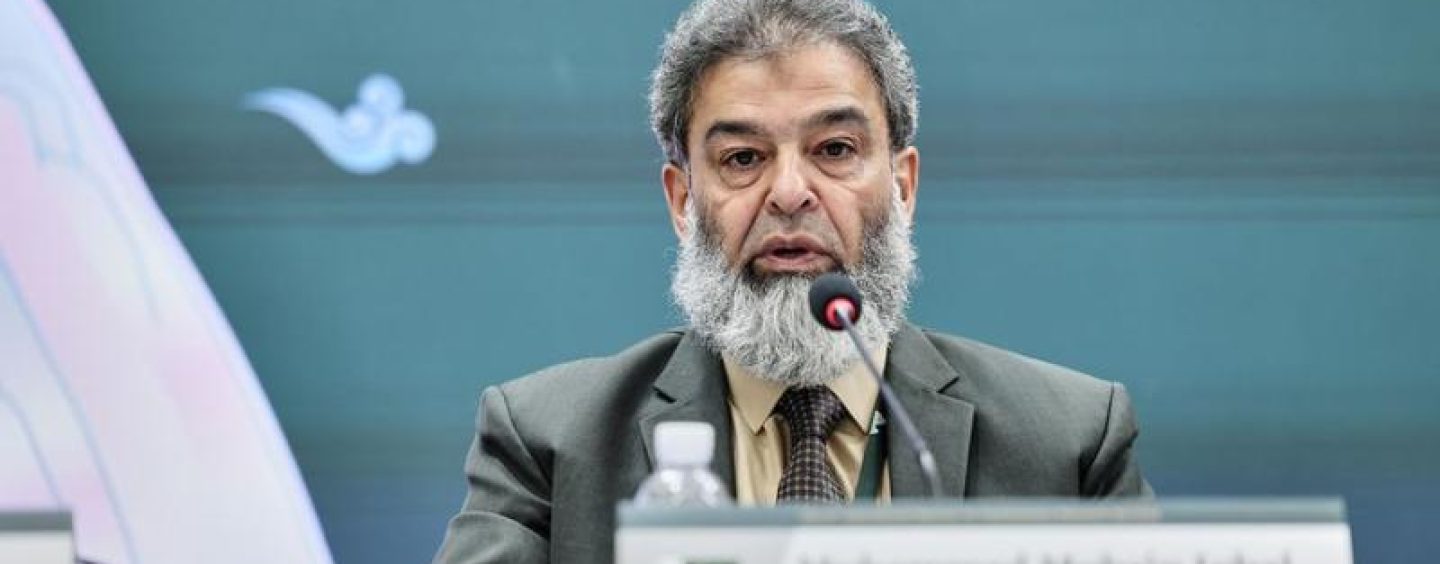
Mutual Trust, Mutual Strength: The Growing Defence Partnership Between Pakistan and Azerbaijan
By Muhammad Mohsin Iqbal, Director General Research National Assembly Secretariat
Parliament House Islamabad (Pakistan)
Military cooperation between Pakistan and Azerbaijan has, in little more than three decades, evolved from courteous diplomatic friendship into a relationship of tangible strategic substance. What began as warm political solidarity after Azerbaijan regained independence in 1991 has matured into defence ties marked by training programmes, equipment transfers, formal agreements, and a growing rhythm of joint military exercises. These developments reflect a steadily deepening partnership shaped by shared geopolitical sympathies, compatible security priorities, and an instinctive trust between the two nations.
The foundation for sustained defence collaboration was laid through a series of structured arrangements and practical exchanges that accumulated steadily through the 2000s and early 2010s. A significant milestone came in February 2014 when the two countries signed a formal agreement on military cooperation. This accord provided an institutional framework for training, exchanges of expertise, and defence-technical collaboration. Under its provisions Pakistan opened its military academies and aviation institutions to Azerbaijani cadets and officers, offering pilot training and specialised instruction in infantry, artillery, logistics, and operational planning. Over the years, Pakistani institutions have trained scores of Azerbaijani officers and soldiers, while Pakistani instructors visited Baku periodically to assist in professional development programmes. These exchanges helped build personal rapport between the militaries and created a shared doctrinal understanding that later exercises would deepen further.
High-level visits and the signing of multiple memoranda have continued to reinforce the political and legal scaffolding of these defence ties. Defence ministers, chiefs of armed forces, and senior commanders from both sides have exchanged visits frequently, discussing cooperation in areas ranging from counterterrorism to defence industry linkages. A notable diplomatic moment occurred on 11 July 2024, when Pakistan and Azerbaijan signed various agreements and memoranda covering trade, investment, energy, culture, and cooperation. Although these agreements were wide-ranging, defence cooperation remained a central and consistent theme, reaffirming the strategic trust that frames every aspect of the bilateral relationship.
Beyond memoranda and training exchanges, the defence partnership has acquired a material dimension. Pakistan’s defence industry, increasingly capable and competitive, has supplied Azerbaijan with platforms aimed at strengthening its operational capabilities. Transfers in earlier years included light training aircraft and guided rocket systems, which were integrated into Azerbaijan’s modernisation plans. A particularly consequential development emerged in September 2024, when Pakistan finalised a contract to supply Azerbaijan with the JF-17 Block III — the latest and most advanced version of the jointly produced Pakistan–China multi-role fighter aircraft. Although financial details and the size of the fleet have not been publicly disclosed, the agreement itself signals Islamabad’s confidence in Baku as a trusted defence partner and confirms Azerbaijan’s interest in diversifying its air combat inventory with modern, cost-effective systems.
Yet it is perhaps the arena of joint exercises where the depth of the partnership becomes most visible. Among the most prominent of these was the “Three Brothers — 2021” exercise, conducted in Baku from 12 to 20 September 2021. This was the first trilateral military drill involving the armed forces of Pakistan, Azerbaijan, and Turkey. Designed to enhance interoperability and harmonies tactical procedures, the exercise focused on counterterrorism operations, urban warfare, reconnaissance, and coordinated manoeuvre at the patrol and company levels. It demonstrated not only operational cooperation but a political message of solidarity and unity among the three nations.
Since then, joint training initiatives have expanded noticeably. Pakistan has sent contingents to Azerbaijan for live-firing drills, small-unit manoeuvre exercises, and specialised training tailored to mountainous and urban terrain. Azerbaijan, for its part, has dispatched officers and delegations to Pakistan to participate in staff courses, observe exercises, and engage in counterterrorism and aviation-related training. These reciprocal exchanges serve a purpose far deeper than ceremony: they cultivate doctrinal harmony, build professional networks among officers, and enable both sides to share lessons in logistics, intelligence, air defence, drone operations, and artillery employment.
Trilateral and broader multilateral exercises involving Pakistan and Azerbaijan have added further value. Operating alongside Turkey — a longstanding and deeply trusted military partner for both countries — Pakistan and Azerbaijan have been able to rehearse coalition logistics, joint communication protocols, and coordinated operations in simulated regional contingencies. These exercises serve as deterrent signals, illustrating that a cooperative military architecture exists across a geographic arc stretching from South Asia to the South Caucasus. Such demonstrations strengthen political confidence and underscore the willingness of the three states to contribute collectively to regional stability.
Defence cooperation has also been reinforced by growing economic and industrial engagement. Political leadership in both capitals has discussed expanding bilateral investment to a potential target of around two billion dollars, covering infrastructure, energy, defence technology, agriculture, and joint industrial ventures. For defence ties, such economic linkages matter greatly; they create the financial and industrial foundation needed for long-term procurement, upkeep, and potential co-production of systems. As Pakistan’s defence industry continues to progress, opportunities for collaboration in joint manufacturing, maintenance facilities, and technology transfer are expected to expand.
Observers of the relationship note that the partnership aligns naturally with the strategic outlook of both states. Pakistan has long supported Azerbaijan’s position on the Karabakh conflict, and this consistent political support has been acknowledged and appreciated in Baku. Azerbaijan, in turn, has backed Pakistan’s stance on Jammu and Kashmir in international forums and has cultivated strong ties with Islamabad as part of its broader network of partnerships in the Muslim world. The defence relationship is therefore reciprocal and mutually reinforcing; Pakistan offers training, technology, and operational expertise, while Azerbaijan provides diplomatic support, strategic access to the Caspian region, and a partner whose security concerns resonate with Islamabad.
While certain procurement details remain confidential for understandable reasons, the public record leaves no doubt that the defence partnership has moved steadily from goodwill to structured, substantive cooperation. The trajectory suggests further expansion — more joint exercises, enhanced training programmes, potential co-production ventures, and expanded staff interactions to maintain the momentum of professional exchange.
In an era when many strategic alliances are transactional or short-lived, the Pakistan–Azerbaijan military relationship stands out for its durability and steady growth. It is a partnership born of political affinity but sustained by professional engagement, shared interests, and a clear strategic logic. As both states navigate an evolving regional landscape, their defence cooperation appears set not only to endure but to deepen, translating diplomatic warmth into concrete capability, mutual resilience, and shared security in the years ahead.





